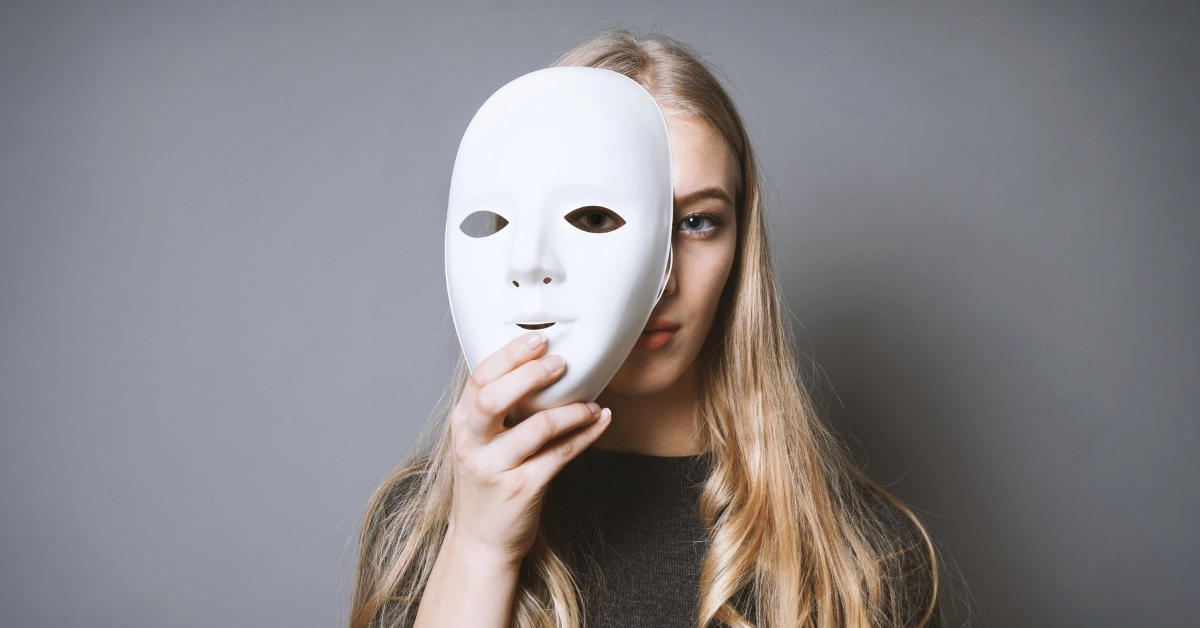Bipolar Disorder Treatment in San Diego
Bipolar disorder is a complex mental health condition that significantly impacts millions of people worldwide. Specifically, it is characterized by intense mood swings that range from emotional highs, such as mania or hypomania, to debilitating lows, like depression. Moreover, managing this condition requires thoughtful care and consistent management to address its challenges effectively. At Park Mental Health, we are dedicated to providing comprehensive support that empowers individuals to navigate these difficulties successfully. Ultimately, our goal is to help individuals regain control of their lives and achieve greater stability.
What is bipolar disorder?
Bipolar disorder involves extreme mood swings and instability.
Bipolar disorder is a mental health condition characterized by extreme mood shifts that significantly disrupt daily life, relationships, and work performance. These fluctuations, which include episodes of intense highs (mania or hypomania) and deep lows (depression), are not a reflection of personality traits or poor decision-making. Instead, they are the result of a complex interplay of biological, genetic, and environmental factors. Consequently, bipolar disorder requires professional treatment and ongoing management to help individuals lead fulfilling lives. Therefore, understanding the condition and seeking timely care are crucial steps toward effective symptom control and overall well-being.
Bipolar disorder can manifest in different forms, with varying degrees of severity. Understanding the symptoms and types is crucial for seeking appropriate treatment.
Bipolar disorder affects approximately 2.8% of U.S. adults. The onset is typically in late adolescence or early adulthood. It also commonly co-occurs with conditions such as anxiety or substance use disorder.
If bipolar disorder is impacting your life, contact Park Mental Health in San Diego today to begin your journey toward balance and well-being.
Symptoms of bipolar disorder to look out for
Recognizing the signs of bipolar disorder is critical for early intervention and effective treatment. Symptoms can vary depending on the phase, whether it’s mania, hypomania, or depression. Moreover, identifying these signs early allows for timely care, which can significantly improve outcomes and prevent further disruption in daily life.
Mental signs
- Intense sadness
- Extreme irritability
- Elevated mood
- Euphoria
- Low self-esteem
- Anxiety
- Guilt
- Hopelessness
- Overwhelming joy
- Rapid mood shifts
- Anger outbursts
- Emotional numbness
Physical symptoms
- Risky behaviors
- Impulsive actions
- Decreased sleep
- Excessive talking
- Increased energy
- Disorganized thinking
- Substance abuse
- Poor judgment
- Social withdrawal
- Hyperactivity
- Racing thoughts
- Overcommitment

The types of bipolar disorder
Bipolar disorder encompasses several types, including Bipolar I, Bipolar II, cyclothymic disorder, and bipolar disorder not otherwise specified. While each type differs in the severity and duration of mood swings, they all share common symptoms like periods of mania or hypomania, followed by depressive episodes. However, given their similarities, accurate diagnosis is crucial for effective treatment and managing symptoms, ensuring individuals receive the best care possible.
Bipolar I
Bipolar I Disorder is characterized by manic episodes that last at least seven days or require hospitalization. These intense episodes are often followed by depressive episodes, which typically last for at least two weeks. During manic phases, individuals may engage in risky behaviors, exhibit impulsivity, or turn to substance use. Consequently, these fluctuations can severely impact daily functioning and relationships. Moreover, the severity of manic episodes in Bipolar I often requires careful management to prevent harmful consequences. Therefore, a comprehensive treatment plan, including therapy and medication, is essential to help individuals manage the challenges of this condition effectively.
Bipolar II
Bipolar II Disorder involves both depressive episodes and hypomanic episodes, which are less intense than full-blown mania. While hypomania doesn’t cause the extreme disruptions seen in manic episodes, it can still affect daily functioning significantly. Individuals with Bipolar II often experience mood fluctuations that impact relationships, work, and overall well-being. Consequently, even though hypomanic episodes may appear less severe, they can lead to impulsivity, decreased sleep, and risky behaviors. In addition to the depressive episodes, which can be debilitating, these mood changes require ongoing management. Therefore, timely diagnosis and appropriate treatment are vital for helping individuals manage their symptoms and improve their quality of life.
Cyclothymic disorder (cyclothymia)
Cyclothymic Disorder, or Cyclothymia, is a chronic, milder form of bipolar disorder that involves periods of hypomanic and depressive symptoms lasting for at least two years. While these symptoms don’t meet the criteria for full manic or depressive episodes, they can still significantly disrupt daily life. Consequently, individuals with cyclothymia may experience ongoing mood fluctuations that impact their relationships, work, and overall well-being. Moreover, the continuous nature of these symptoms can make it difficult for individuals to maintain stability. Therefore, even though cyclothymia may appear less severe than other forms of bipolar disorder, it still requires careful management to prevent further complications and improve quality of life.
Bipolar disorder not otherwise specified (BP-NOS)
Bipolar Disorder Not Otherwise Specified (BP-NOS) is diagnosed when symptoms don’t align with the criteria for other types of bipolar disorder or are too brief in duration to fit specific categories. Although less clearly defined, BP-NOS still significantly affects an individual’s life. In many cases, the mood swings may be disruptive but don’t meet the full criteria for mania or depression. Consequently, individuals may experience periods of intense mood changes, impulsivity, or emotional instability, which can interfere with work, relationships, and overall functioning. Therefore, despite the lack of a distinct classification, BP-NOS requires attention and tailored treatment to manage symptoms effectively and improve quality of life.

Contributing factors to bipolar disorder
Bipolar disorder can manifest due to a combination of biological, environmental, and psychological factors. Biologically, genetic predispositions and chemical imbalances in the brain play a significant role in its development. Additionally, environmental stressors, such as trauma or significant life changes, can trigger mood episodes. Psychologically, past experiences, particularly those involving stress or emotional regulation, can further influence how the disorder presents itself. As a result, each individual’s experience with bipolar disorder is unique and shaped by an interplay of these factors. Understanding this complexity is crucial for tailoring effective treatment approaches.
Biological factors
Bipolar disorder often manifests due to biological factors, such as genetic predispositions and brain chemistry imbalances. Research shows a strong genetic link, with individuals having a family history of the disorder at higher risk. Additionally, neurotransmitter irregularities, like those in serotonin and dopamine, affect mood regulation, leading to extreme mood swings. Consequently, understanding these biological factors is crucial for recognizing the disorder and tailoring effective treatment strategies.
Environmental factors
Bipolar disorder can also manifest due to environmental factors, such as stressful life events, trauma, or significant changes. These triggers can intensify underlying genetic vulnerabilities, leading to the onset of mood episodes. For instance, major life stressors like a job loss or relationship challenges can bring on depressive or manic phases. Therefore, understanding the impact of these environmental factors is essential for managing bipolar disorder and providing effective care.
Psychological factors
Bipolar disorder can also be influenced by psychological factors, such as a history of trauma, stress, or childhood adversity. These experiences can contribute to mood instability, triggering both manic and depressive episodes. Additionally, individuals with a family history of mental health conditions may be more vulnerable. Consequently, addressing these psychological aspects is crucial for understanding the disorder and providing effective support for those affected.

How we treat bipolar disorder at Park
Bipolar disorder requires a multifaceted treatment approach tailored to each individual. At Park Mental Health, we combine therapy, medication, and lifestyle strategies to help individuals achieve long-term stability and well-being.
Therapeutic approaches
Cognitive Behavioral Therapy (CBT) helps individuals identify and challenge negative thought patterns, which in turn improves emotional regulation and resilience. Additionally, Interpersonal and Social Rhythm Therapy (IPSRT) focuses on stabilizing daily routines and sleep patterns to minimize mood swings. By addressing these factors, individuals can achieve more consistent emotional balance. Moreover, Family Therapy plays a key role by involving loved ones in the treatment process. This approach fosters a supportive environment, enhancing communication and strengthening relationships, ultimately contributing to a more effective recovery journey. Together, these therapies provide a comprehensive and holistic approach to managing bipolar disorder.
Medication management
Medication management plays a crucial role in treating bipolar disorder, with medications like mood stabilizers, antipsychotics, and antidepressants commonly prescribed. These medications help manage mood swings and other symptoms, allowing individuals to regain stability. However, finding the right balance of medications is essential for effective symptom management. This process often requires careful monitoring and adjustments to ensure optimal results. Consequently, patients may work closely with healthcare providers to fine-tune their medication regimens. Ultimately, with the right combination of medications, individuals can experience significant improvements in their symptoms, enabling them to lead a more stable and fulfilling life.
Lifestyle and coping strategies
Encouraging healthy habits is essential for managing bipolar disorder. Regular exercise, balanced nutrition, and sufficient sleep contribute significantly to emotional stability. In addition, teaching stress-management techniques such as mindfulness and relaxation exercises helps individuals cope with daily challenges more effectively. Furthermore, providing tools to identify triggers and develop proactive coping mechanisms empowers individuals to manage their symptoms before they escalate. By incorporating these strategies into daily routines, patients can build resilience and improve overall well-being. Ultimately, these healthy habits, alongside professional treatment, foster a more balanced and manageable life, promoting long-term stability.

Why choose Park?
At Park Mental Health, we understand the profound impact bipolar disorder can have on individuals and their families. Our compassionate team of professionals is committed to providing personalized care, offering hope and support every step of the way. Whether you’re experiencing the highs of mania or the lows of depression, we’re here to help you regain stability. Moreover, we work together to ensure that you thrive, empowering you to take control of your mental health. Ultimately, our goal is to provide the support needed for a balanced, fulfilling life.
Your most frequently asked questions, answered.
What areas do you cover?
Park Mental Health Treatment covers the San Diego, California area. If you are unsure of whether you are near our facility, please either submit an online form or alternatively contact a member of our team today on 866-420-2524.
Do you provide outpatient care?
Yes, Park Mental Health Treatment has the facilities to cater for outpatient care. Alternatively, if you require inpatient care, we also have partnerships with facilities around the San Diego, CA area that can cater for inpatient therapies.
How do I get in contact?
To contact a member of our team, either complete an online form or call us directly on 866-420-2524.